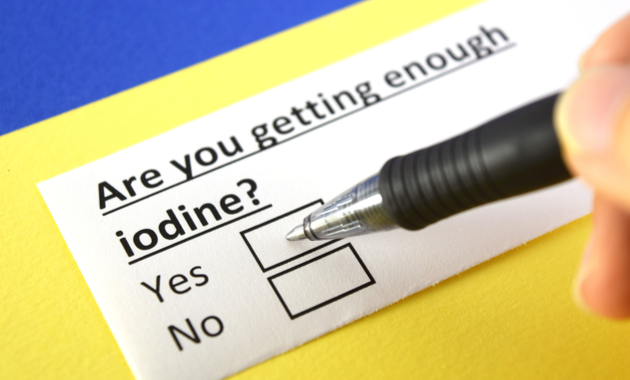
Iodine is an essential micro-nutrient which is required for normal thyroid function and proper growth and development. However, iodine deficiency disorders are one of the biggest worldwide public health concern as of today. According to a recent report on the global status of iodine[1], around 1.88 billion people are at risk of iodine deficiency and 241 million school children have an inadequate iodine intake. So on this World Iodine deficiency day, let us help you understand a bit about iodine deficiency symptoms. Here are 9 things you should know about Iodine deficiency.
What are the signs and symptoms of iodine deficiency?
Here are some of the common signs and symptoms of iodine deficiency:
1. Swelling of the neck: Also known as goiter, it is one of the most common symptoms of iodine deficiency. When the body is low on iodine, the thyroid gland (which is situated in the neck region) fails to make enough thyroid hormones to meet the demand. So to meet the demand, the gland works harder, which causes the thyroid cells to grow and multiply, causing the gland to grow in size, which in turn leads to swelling of the neck.
2. Feeling weak and tired: This is the most common symptoms of hypothyroidism caused due to iodine deficiency. According to a 2017 Indian study on hypothyroidism[2], it was reported that around 95% of people suffering from low thyroid and iodine levels experience weakness and lethargy. It could be attributed to the fact that thyroid hormones play a key role to maintain energy levels in the body. So lack of the hormone can cause a drop in your energy levels and leave you feeling lethargic and weak.
3. Unexplained weight gain: The thyroid hormones also help control metabolism. So lack of iodine causes low levels of thyroid hormones, which affects the speed at which the body burns calories. As a result, the body burns fewer calories and stores the excess calories in the form of fat, causing you to gain weight.
Buy the best weight loss products at 1mg now
4. Hair loss: Most of us are aware of the fact that low levels of thyroid can lead to hair loss. This is because thyroid hormones aid in the growth of hair follicles. Hence, lack of iodine and thus low thyroid levels can stop the hair follicles from growing, which over time can lead to significant hair fall.
5. Dry and coarse skin: More than 85% of the population with low thyroid and iodine levels can experience dry and harsh skin reported a 2017 study[2] done by Indian researchers. Thyroid hormones not only help the skin cells to regenerate but also help to keep the skin hydrated by regulating the sweat mechanism. Thus, people with low thyroid levels tend to sweat less, which makes them more prone to dry skin.
Healthy Skin Matters..!! Get Minimum 30% Discount On Skin Care Products.
6. Impaired memory: It is reported that iodine deficiency can cause brain damage in children which can lead to learning disability and psychomotor impairment which includes difficulty in remembering (memory), speaking, talking, and thinking. This is because thyroid hormones help the brain to grow and develop and lack of this hormone due to insufficient iodine can lead to cognitive impairment.
Moreover, an insufficient supply of thyroid hormones to the developing brain can lead to mental retardation. In pregnant women, brain damage and irreversible mental retardation of the growing fetus are some of the common complications induced by iodine deficiency.
7. Intolerance to cold: Low levels of thyroid hormones can affect the metabolism and lead to less heat production, making you feel sensitive to cold. Moreover, the low metabolic rate and low body temperature can make you more prone to feeling cold. It is seen that almost 84% of people with low thyroid levels experience cold intolerance[2].
Hence, ensure your daily recommended dose of iodine is fulfilled through your diet either from natural sources or fortified foods (or salts). And if you experience any of these symptoms of iodine deficiency it is wise to consult a doctor to know the exact cause of the disease and get it treated at the earliest.
(The article is reviewed by Dr. Lalit Kanodia, General Physician)
References:
1. Kaur G, Anand T, Bhatnagar N, Kumar A, et al. Past, present, and future of iodine deficiency disorders in India: Need to look outside the blinkers. J Family Med Prim Care. 2017 Apr-Jun;6(2):182-190.
2. Mahanta A, Choudhury S, Choudhury SD. Prevalence of hypothyroidism in Assam: A clinic-based observational study. Thyroid Res Pract 2017;14:63-70.
3. Kostoglou-Athanassiou I, Ntalles K. Hypothyroidism – new aspects of an old disease. Hippokratia. 2010 Apr;14(2):82-7.
4. Kapil U. Health consequences of iodine deficiency. Sultan Qaboos Univ Med J. 2007 Dec;7(3):267-72.